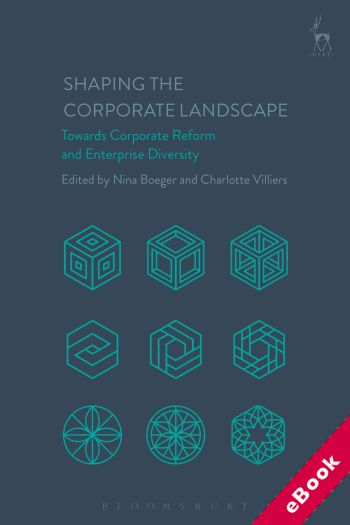
The device(s) you use to access the eBook content must be authorized with an Adobe ID before you download the product otherwise it will fail to register correctly.
For further information see https://www.wildy.com/ebook-formats
Once the order is confirmed an automated e-mail will be sent to you to allow you to download the eBook.
All eBooks are supplied firm sale and cannot be returned. If you believe there is a fault with your eBook then contact us on ebooks@wildy.com and we will help in resolving the issue. This does not affect your statutory rights.
There exists currently a distrust of corporate activity in the continuing aftermath of the financial crisis and with increasing recognition of the threats of climate change and global, as well as national, inequalities. Despite efforts in the arena of corporate governance to address these, we are still beset with corporate scandals and we witness companies facing large fines for their environmental and cost cutting misdemeanours. Recognising that the usual responses to dealing with these corporate problems are not effective, this book asks whether the traditional form of the joint stock corporation itself lies at the heart of these problems. What are the features of the corporate form and how it is regulated that might underscore these problems? Identifying such features then provides a basis for the discussion to develop towards suggesting more progressive regulatory developments around the corporate form. More fundamentally, the book investigates a diverse range of corporate governance models that are emerging as alternatives to the shareholder corporation, including employee-owned, cooperative and social enterprises.
Contributors are leading scholars of various backgrounds including law, management and organisation studies, finance and accounting, as well as experienced professionals and policy makers with expertise in social and cooperative business models and the role of employees in the corporation.